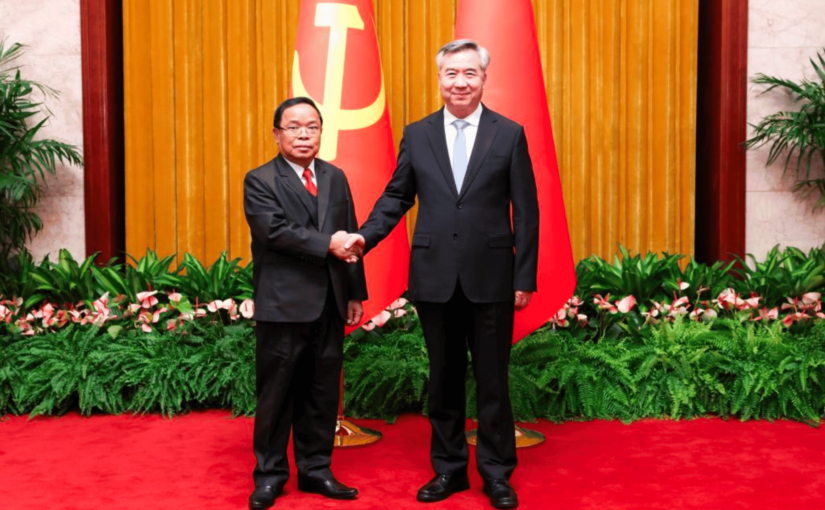The close and comprehensive ties between China and its socialist neighbour, the Lao People’s Democratic Republic have been reinforced with a recent visit by Khamphanh Phommathath, Politburo member of the Central Committee of the Lao People’s Revolutionary Party (LPRP), chairman of the Inspection Committee of the Party Central Committee and president of the State Inspection Authority.
In a meeting with his Chinese counterpart Li Xi, a member of the Standing Committee of the Political Bureau of the Communist Party of China (CPC) Central Committee and secretary of the CPC Central Commission for Discipline Inspection, in Beijing on December 6, Li noted that China and Laos are friendly socialist neighbours that walk hand in hand, bound by the same destiny.
China, he added, supports Laos in playing a bigger role in ASEAN and in international and regional affairs, and stands ready to work with Laos to realise the vision of a community with a shared future for humanity.
Laos will assume the rotating chair of the Association of South East Asian Nations (ASEAN) for 2024.
While briefing the Lao side on the CPC’s efforts to enforce strict Party governance and fight corruption comprehensively, Li said the CPC is willing to strengthen its exchanges of experience with the LPRP on improving party conduct, building a clean government and combating corruption.
Khamphanh said the LPRP cherishes its close friendship with the CPC, and that it is willing to work with the Chinese side to firmly implement the important consensus reached by the top leaders of the two parties and countries as well as promote the construction of a clean railway between Laos and China, promote the greater development of relations between the two parties and two countries, and deepen cooperation on discipline inspection, supervision and anti-corruption work.
The following article was originally carried by the Xinhua News Agency.
BEIJING, Dec. 6 (Xinhua) — Li Xi, a member of the Standing Committee of the Political Bureau of the Communist Party of China (CPC) Central Committee and secretary of the CPC Central Commission for Discipline Inspection, on Wednesday held talks with Khamphanh Phommathath, Politburo member of the Party Central Committee of the Lao People’s Revolutionary Party (LPRP), chairman of the Inspection Committee of the Party Central Committee and president of the State Inspection Authority.
Li noted that China and Laos are friendly socialist neighbours that walk hand in hand, bound by the same destiny. He said that China, guided by the important consensus reached by the top leaders of the two parties and countries, is ready to work with Laos to intensify high-level exchanges, enhance strategic communication, synergize development strategies further, and expand high-quality cooperation on the joint construction of the Belt and Road.
China supports Laos in playing a bigger role in ASEAN and in international and regional affairs, and stands ready to work with Laos to realize the vision of a community with a shared future for humanity, build the Belt and Road, and implement the Global Development Initiative, the Global Security Initiative and the Global Civilization Initiative, Li added.
While briefing the Lao side on the CPC’s efforts to enforce strict Party governance and fight corruption comprehensively, Li said the CPC is willing to strengthen its exchanges of experience with the LPRP on improving party conduct, building a clean government and combating corruption. He said the CPC is ready to deepen communication and coordination under multilateral anti-corruption mechanisms, work with Laos to promote the construction of a clean Silk Road, cooperate in combating cross-border corruption crimes, and provide a strong guarantee to promote the construction of a community with a shared future between China and Laos.
Khamphanh said the LPRP cherishes its close friendship with the CPC, and that it is willing to work with the Chinese side to firmly implement the important consensus reached by the top leaders of the two parties and countries. He said the LPRP is ready to intensify high-level exchanges, strengthen exchanges and mutual learning related to governance experience, promote the construction of a clean railway between Laos and China, promote the greater development of relations between the two parties and two countries, and deepen cooperation on discipline inspection, supervision and anti-corruption work.


